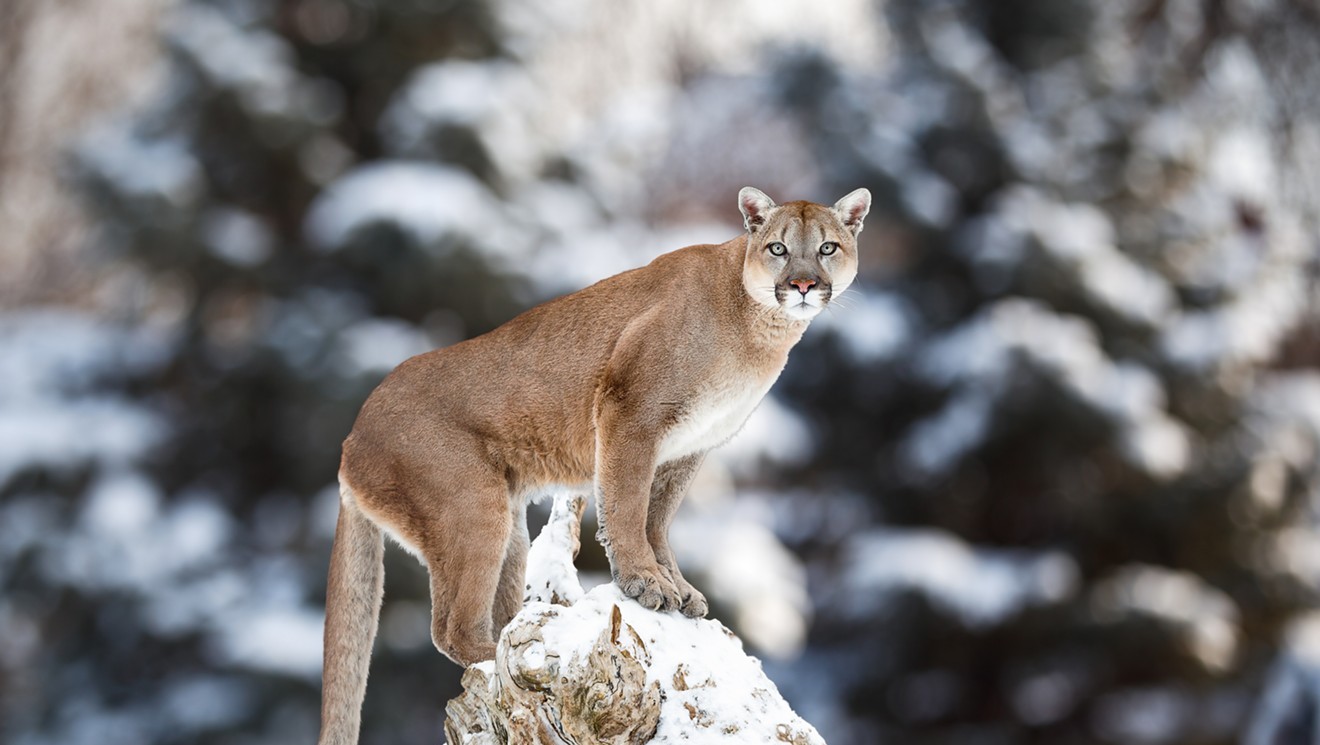
News outlets across the country have been churning out endless coverage about the March 18 “attack,” which left a Chaffee County man with “four superficial scratches,” according to local officials.
Headlines like CNN’s “Mountain lion claws man’s head” and Today‘s “Mountain lion attacks couple relaxing in hot tub on vacation in Colorado” can be found scattered all over the internet, vilifying a wild creature that many people — especially Coloradans — feel is both majestic and misunderstood.
“@9NEWS is running a story of a man ‘Attacked’ by a mountain lion while in a hot tub,” said Westminster resident @realdealkvp in a March 21 tweet. “I find this irresponsible as it was a curious lion checking things out, that was then scared and ran off. Did it swipe at guy, sure to see what was going on, is it food? Curiosity, not attack.”
CNN‘s mountain lion hit piece was propped up Monday with quotes from Colorado Parks and Wildlife manager Sean Shepherd, who said in the original CPW press release that “although this victim had only minor injuries, we take this incident seriously.”
CNN ran with the admission, insinuating over and over the intrinsic criminality of the mountain lion by referring to the man in the hot tub as its “victim.” The report even goes so far as to say that the big cat still has not been found as of Tuesday, March 28 — as though it were an armed killer on the lam.
Heck, even fingerprints, aka “lion tracks,” were mentioned as being part of an elaborate search for the feline suspect.
Only 24 mountain lion attacks have resulted in an injury of any degree since 1990, and this incident marks the first time a human has been attacked in Colorado this year. So what’s all the fuss about? Is the mountain lion really the bloodthirsty aggressor the media has made it out to be? Should this incident really be considered an “attack” and worrisome to people?
According to CPW officials, the situation is nowhere near as frightening as it appears.
“By our directives,” says CPW’s Southeast Region public information officer Bill Vogrin, “any time a predator makes contact with a human, it classifies as an attack.”
In the Chaffee County case, the mountain lion’s “victim” was sitting with his wife in an in-ground hot tub — located in an area away from the house they were staying in — when he felt something “grab” his head, according to the CPW press release. The couple yelled and splashed water at the big cat, causing it to run off and watch them from a distance.
“The victim had four superficial scratches on top of his head and near his right ear,” said CPW officials. “By the time CPW was alerted and responded, the victim had cleaned the wounds and declined any medical assistance.”
An attack? Technically, yeah — but not one that should warrant a national press campaign.
Did the mountain lion have it out for the guy? Was the “clawing” made in malice? “That doesn’t seem likely,” Vogrin says.
Instead, CPW officials believe that a more genuine description of what happened with the hot tub mountain lion would be that it was prowling around in the woods — where mountain lions are known and expected to prowl — when it saw a big hairy object at ground level, which it wanted to inspect.
Vogrin compared the hot tub incident to another in 2019, when a trail runner fought off a pouncing mountain lion in Fort Collins. He says that’s a better example of an attack in which a mountain lion actually — and definitively — intended to cause harm to a human.
But even in that story, the details were inflated.
It later came out in reports that the attacking mountain lion was a 35-to-40-pound “kitten” — the term used for mountain lions less than one year old — and not a fully grown adult, like many people initially imagined. Even worse, officials believed the creature was “orphaned as a child” and “starving,” according to Insider.
In reality, data shows it’s humans that are on the rise.
As the state’s population continues to grow, people are moving into more and more remote areas where wildlife has always been. They’re putting up security cameras and Ring doorbells, then getting surprised when wildlife shows up in the footage.
The question is, will the media ever tell the whole story? Will the “mountain lion attacks man” news coverage ever actually talk about the plight of Colorado’s most famous big cat? Will a headline ever read, “Man Attacks Mountain Lion” — referring to the systematic destruction of their natural habitats? Only time will tell.
Stay connected with us on social media platform for instant update click here to join our Twitter, & Facebook
We are now on Telegram. Click here to join our channel (@TechiUpdate) and stay updated with the latest Technology headlines.
For all the latest For Top Stories News Click Here
